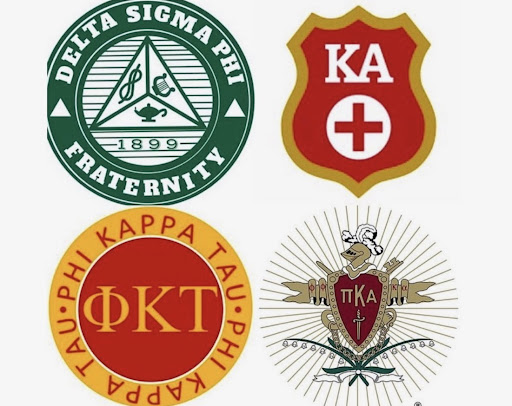The Transylvania University Interfraternity Council recently held elections for the new term, and members of the Kappa Alpha Order dominated the results. Of the six council members, five positions are now held by KA members, with the other representative from Pi Kappa Alpha. The new board consists of President William Fries (‘24, KA), Executive Vice President Bennett Fain (‘25, KA), Vice President of Judicial Affairs Nicholas Sandman (‘24, KA), Vice President of Recruitment Tucker Strode (‘25, KA), and Vice President of Public Relations Jackson Holt (‘26, Pike). The Interfraternity Council exists to promote the shared interests of all fraternities, but concerns arise as a single fraternity holds a vast majority of the seats.
To address these concerns, I interviewed Tucker Strode, the newly-elected IFC Vice President of Recruitment and KA’s Alumni Relations Chair. I first asked Strode how KA gained the majority of seats in the first place. He simply answered, “No one else applied.” After further investigation, it is true that no representatives from Phi Kappa Tau or Delta Sigma Phi applied or showed up for elections. The one representative from Pi Kappa Alpha was the only exception.
Next, I asked Strode to address the main concern surrounding KA’s majority: how will the IFC ensure all fraternities, especially ones without representation, will be represented? Strode said it is still a work in progress, but there should be nothing to worry about. “We are still early on with this new board, so we are still trying to rework and figure out the process. But we want to ensure that our bylaws, judicial hearings, and recruitment guidelines are adjusted and rewritten to give a lot of representation to the chapters that don’t have any. We want to change rules that are not so open and fluid to where they can be.”
I then asked Strode about the attitude of KA toward their newfound authority. With a majority of seats comes a large amount of power, and there are concerns about potential abuse of power. But for Strode and the rest of KA, it’s not about the power. It’s about promoting the interests of all fraternities. “In our meetings, it’s more about making sure that all fraternities are well-represented. We come into each meeting with an unbiased perspective and try our best to make decisions based on what will be best for all fraternities.”
On the other side of this issue, one fraternity that lacks representation in the IFC is Delta Sigma Phi. I asked current president Jack Dodds if he had any concerns about being underrepresented. He was very earnest in his response: “As much as I would love to have some representation on IFC, and as much as it hurts me that we don’t have any, it’s not the end of the world.” Dodds then clarified some of the processes and protections that have made him feel more secure. He explained to me that IFC members can propose changes to the IFC bylaws but that those changes have to be voted on by the general board. This board consists of one member from each chapter. “While we may not be proposing the changes this year, we still have a voice on those changes,” said Dodds.
Despite the pressing issue of underrepresentation, the president expressed optimism about the current board. “I trust the people on the current board to make decisions based on the betterment of our Greek community. They are all very capable in my eyes.” Overall, Dodds seems to have a good outlook on the current situation, but he ended by saying this election has been a wake-up call. “We plan to do a much better job encouraging people to apply next year. We need to be more represented.”
Phi Kappa Tau is the other fraternity without representation on the board. Ethan Anderson, former President and current Vice President of External Affairs of Phi Kappa Tau, has a similar outlook to President Dodds. “It is concerning not having a member holding an actual position of authority of IFC, but we still have delegates eligible to go to the meetings and keep us informed.” He continued, “As far as any changes to the bylaws or installing new ideas, the IFC voting process is still just one vote from each fraternity. So yes, while having no real IFC officer is concerning, we still are represented.” Anderson also noted that Candy Rivera, the Assistant Director of Campus Engagement, is another potential safety net if the situation gets out of hand. “She does a good job listening to any concerns we may have,” he added.
I attempted to reach out to representatives from Pi Kappa Alpha to get their thoughts on the issue, but my request was declined.
Ultimately, concerns exist in light of the newly elected board, but those concerns do not come without optimism and reassurance. Fraternities lacking representation on the board must rely on protections that give them a voice on a minimal level, but it must be comforting to know that the council has good intentions in mind.





